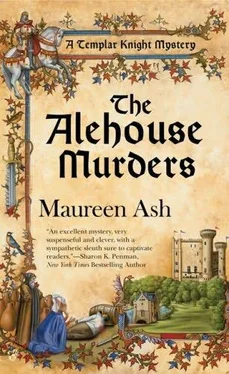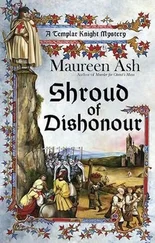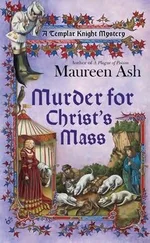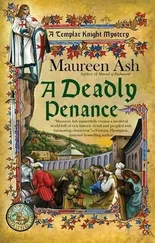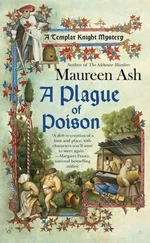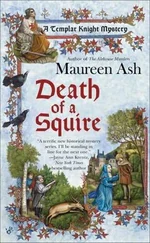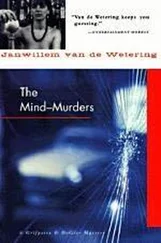Maureen Ash - The Alehouse Murders
Здесь есть возможность читать онлайн «Maureen Ash - The Alehouse Murders» весь текст электронной книги совершенно бесплатно (целиком полную версию без сокращений). В некоторых случаях можно слушать аудио, скачать через торрент в формате fb2 и присутствует краткое содержание. Жанр: Исторический детектив, на английском языке. Описание произведения, (предисловие) а так же отзывы посетителей доступны на портале библиотеки ЛибКат.
- Название:The Alehouse Murders
- Автор:
- Жанр:
- Год:неизвестен
- ISBN:нет данных
- Рейтинг книги:4 / 5. Голосов: 1
-
Избранное:Добавить в избранное
- Отзывы:
-
Ваша оценка:
- 80
- 1
- 2
- 3
- 4
- 5
The Alehouse Murders: краткое содержание, описание и аннотация
Предлагаем к чтению аннотацию, описание, краткое содержание или предисловие (зависит от того, что написал сам автор книги «The Alehouse Murders»). Если вы не нашли необходимую информацию о книге — напишите в комментариях, мы постараемся отыскать её.
The Alehouse Murders — читать онлайн бесплатно полную книгу (весь текст) целиком
Ниже представлен текст книги, разбитый по страницам. Система сохранения места последней прочитанной страницы, позволяет с удобством читать онлайн бесплатно книгу «The Alehouse Murders», без необходимости каждый раз заново искать на чём Вы остановились. Поставьте закладку, и сможете в любой момент перейти на страницу, на которой закончили чтение.
Интервал:
Закладка:
As they ate, Bascot thought again about the events of the morning. In a sense, Lady Nicolaa was not only giving him a duty to perform, but a test of his capabilities. She had taken him into her household on the recommendation of the Templar master in London, who was an acquaintance of hers. When she had learned that Bascot could read and write she had asked him, after he had regained some of his strength, if he would assist her in carrying out some of the tasks of running the demesne. Literacy was uncommon, even amongst the nobility, and she had need of someone trustworthy to aid her and her overworked bailiffs and clerks in preparing the records necessary to overseeing her lands. Nothing too onerous, she had explained, or unfitting to his rank, but she herself had so little time and it would bring her great relief if he would agree. Bascot had smiled at her guile. Since he was eating her food and accepting the shelter of his room he could hardly refuse, but she had given him the courtesy of putting the request in the form of a favour to her, not as payment for her generosity. He had agreed to do as she asked and she had given him her thanks.
So far, since coming to Lincoln, his duties had consisted of visiting some of the lands belonging to Haye and overseeing the tallies of sheep and grain, recording the stores that had been used from the castle stock and helping with the many accounts that had to be kept of wages paid to knights and servants. Now, it seemed, Lady Nicolaa had given him a task that would stretch his capabilities, see if he was able to cope with a situation that gave him more responsibility, albeit on her behalf.
He wondered why. There were other knights in her retinue to whom she could have handed over the responsibility of investigating the murders. He was, after all, not strictly in her service, but only a guest. She knew he could have refused but she had also surmised that he would not. Why had she chosen him? Was it just convenient, or had she done it deliberately? Her calm face, slightly round with a margin of red hair turning grey showing beneath her coif, had regarded him steadily, her pale, slightly protuberant, blue eyes deceptively innocuous. She had held his own gaze as she spoke. She seemed to be defying him to refuse. Why?
At last he shrugged and left his pondering. When the Saracens had first put him into a prison cell after his capture during a skirmish on the road to Ascalon, he had asked himself a similar question. Why had God chosen that he should not die along with his comrades; why had he not fallen with honour and glory, as they had? Why had the Muslims not killed him? No ransom was ever paid for a Templar. It was a rule of the Order to bolster courage and reinforce dedication. But his captors had not killed him. Instead they had kept him as a slave. And he had never understood why. From prison cell to base servant in the household of a Saracen lord to chained oarsman on an infidel pirate ship, through all these happenings he had asked himself the purpose of such a fate. Shipwrecked and washed ashore on the coast of Cyprus, as he had lain recovering from his injuries in a Templar hostel on the friendly island, still he had questioned what the good Lord above had chosen for his destiny. Then, during the long journey home, by boat to Sicily where he had found Gianni, and then on horseback through lands both hostile and friendly to an English knight, he had wondered until finally he had arrived in London and found that the family he had left behind-brother, father and mother-had all, in various ways, perished while he had been in captivity. Then he had ceased to ask or to care. God had forsaken him, forgotten his existence. No longer could he find consolation in the vows he had taken on that far gone day when he had joined the Templar Order. The faith that had burst forth so joyously when he had pledged himself to Christ had dwindled, becoming no more than the flicker of a feeble rush light.
It had been because of this lapse of faith that the Templar master in London had suggested he leave the Order for a space and recover his health within the shelter of the royal castle of Lincoln. Usually, any Templar knight leaving the Order had to enter a regime that was stricter in its rules than their own, but in his case Bascot knew that the Templars hoped he might return to their fold. Sending him to Nicolaa de la Haye had been a way of releasing him, but not quite letting him go.
Bascot knew this and accepted it. When he had first arrived at Lincoln he had just wanted a quiet place to recover from the rigours of his captivity and the shock of learning about the deaths in his family. So far, he found himself content. He was well fed and had slowly, by dint of steady bouts of exercise on the practice field with Ernulf, found his body responding so that he had recovered much of his former strength. Lady Nicolaa, he suspected, had purposely allowed him this space of healing. Now he thought that she gauged him ready for something more and was challenging him. Was he being manipulated and, if so, to what purpose? Once again, he put the question aside.
Gianni had finished his stew, the bowl wiped clean with a chunk of bread, and that chunk devoured. Bascot gave him his own utensils to carry and they made their way out of the chamber into the passage where, set into the wall of the tower, was a latrine. Nearby a cistern had been fashioned with a tap that sluiced rain water from a tank on the roof and flushed the waste into a midden on the lower floor. After using the facilities, Gianni carefully rinsed the tumblers from which they had drunk their ale and put them back in their chamber. Then they descended the stairs, Gianni running ahead to return their eating bowls to the kitchens while Bascot headed for the stables. If he was to discover the identity of the two dead strangers he would need to have a more careful look at their faces, and their clothes. Mounted once more on the grey gelding he had used that morning, and with Gianni riding pillion behind, he headed for the Priory of All Saints, set in the ward of the cathedral.
The priory was an ancient institution, inhabited by Benedictine monks in one part and, behind a high wall that separated its buildings from the rest, a nunnery of the same order. Bascot dismounted at the gate and, after informing the porter of his errand, was ushered into the presence of the infirmarian, leaving his mount with Gianni in the priory yard.
Brother Jehan, the infirmarian, was tending a few sick and aging monks in the long low room that served as a hospital. He listened attentively while Bascot explained his errand. The monk was an elderly man, with white hair ringing his tonsure and a face creased with lines of care. He seemed to Bascot almost as frail as his charges until he bent to administer a draught of some herbal mixture to a young novice raging with a fever. The patient, in his delirium, fought against the cup held to his mouth and Brother Jehan, revealing an unexpected strength in his long bony fingers, gripped the young man by the shoulders and forced him back so that he could tip the contents of the cup into the gaping mouth. Smoothing the brow of his charge with fingers now gentle, he gave instructions to an assistant to watch the patient and motioned for Bascot to follow him.
The infirmarian led the way out of the chamber and down a passage to another room, this one smaller and in semidarkness. The shutters were drawn and only two candles, set in holders below a crucifix hung high on one of the walls, gave any light. In the centre of the room, on trestle tables, lay two linen covered mounds. The odour of sweet-smelling herbs was strong in the air, along with the aroma of incense.
“These are the earthly remains of the alekeeper and the boy whose identity is unknown. The female is with our sisters in the nunnery,” Brother Jehan informed Bascot. “The bodies have been cleansed and wrapped in their shrouds, and Masses will be said for the repose of their souls in chapel tonight, where they will lie until they are interred. Ordinarily the alekeeper would have been laid out in his home, but since it was the place of his murder, his wife’s family has asked that we keep him here.”
Читать дальшеИнтервал:
Закладка:
Похожие книги на «The Alehouse Murders»
Представляем Вашему вниманию похожие книги на «The Alehouse Murders» списком для выбора. Мы отобрали схожую по названию и смыслу литературу в надежде предоставить читателям больше вариантов отыскать новые, интересные, ещё непрочитанные произведения.
Обсуждение, отзывы о книге «The Alehouse Murders» и просто собственные мнения читателей. Оставьте ваши комментарии, напишите, что Вы думаете о произведении, его смысле или главных героях. Укажите что конкретно понравилось, а что нет, и почему Вы так считаете.
